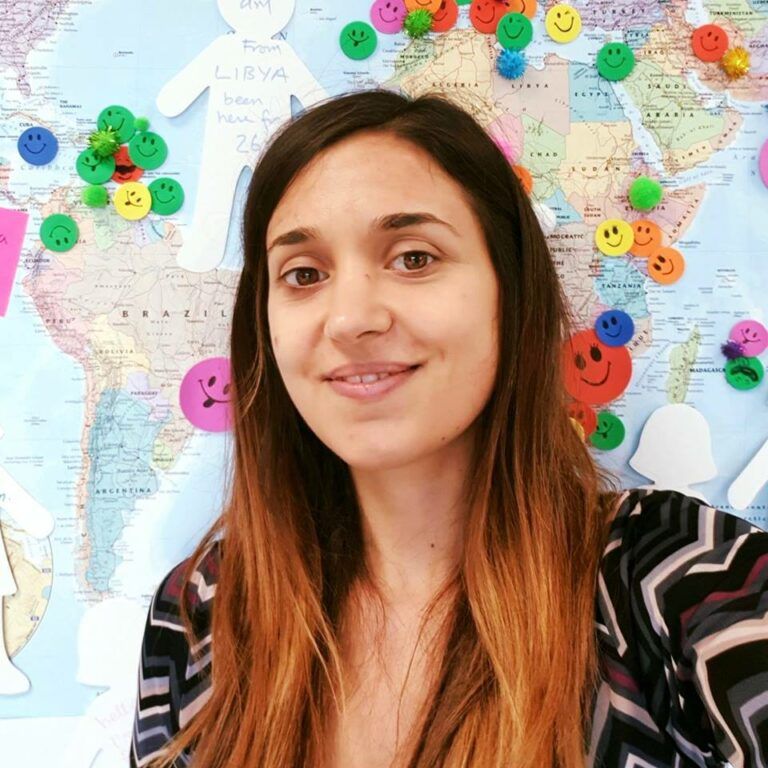Co-production for improvement: Doing small things with love
Agnese Lazzari, Improvement Advisor, shares what she has learnt about co-production through bringing together residents, staff and decision-makers in Newham to improve children’s dental health.
As you walk out of Stratford station, the energy and vibrancy of the crowd in the attractive Olympic Park tell you a lot about the people of Newham. This borough of North East London is one of the most diverse, and the fifth youngest in the country. Over the years, it has been known for its “worst at” records, including crime and poor health outcomes. More recently, its story has moved on with community efforts to be a place where “people choose to live, work and stay”.

Since 2014, UCLPartners has been working in Newham to build capability in quality improvement to contribute to a “better, healthier” Newham and, more recently, supporting the development of an Improvement Academy: a local strategic partnership to support quality improvement and coproduction across multiple stakeholders in order to tackle health challenges in the borough.
Last summer, we worked with communities in Newham to co-produce a vision for the Academy: “a place where individuals come together to learn how to improve care, health and wellbeing to make positive changes to their own and other people’s lives”. Alongside this we’ve been testing using a “co-production in action” methodology developed by the Institute of Health and Human Development at University of East London.
Last month, we ran a workshop in Newham on children’s oral health – a big issue for the borough where decay outcomes are worse than the national average and affect 29% of five-year olds. Engagement with both residents and professionals was key to the success of the day: we worked with local and national experts to collect evidence on children’s oral health and share it with the wider community.
Sixty participants (including mothers and children, GPs and dental experts, public health professionals, health visitors, pharmacists, commissioners and charities) joined the event. They enjoyed a hot Indian meal, played in the creche, met new people, but also worked together to discuss what works and why for Newham communities, map local programmes on dental health, identify innovative solutions for action and share them in a “market place”. Finally, teams were asked to pitch their top suggestions with fun and enthusiasm in a “Dragons Den” session.
Top priorities that emerged included providing consistent and easy-to-understand public health messaging, plus training for professionals, as well as providing free dental health kits, better use of social media platforms and mobile dental services.
The day taught me 10 key factors for successful co-production for improvement:
- Seek your people: Local residents and staff need to be reached in their living and working places. A co-produced event is more likely to work if placed in a key hub for community social life, even better if within the frame of an existing meeting or group.
- Create a friendly setting: Customise the event according to your target audience. Refreshments, entertainment for children and accessible venues will contribute to making a not-to-be missed event.
- Pay attention to diversity and inclusion: Make sure everyone feels welcomed. Pay attention to language needs, communicate in plain English, consider cultural diversity and use facilitating techniques to make sure that all the voices are heard.
- Think about timings: consider the different timing needs of your participants, especially when mothers and children are due to attend (eg, school pick-up times) or specific ethnicity groups (eg, seasonal traditions). Stick to the programmed schedule.
- Promote learning and development: Make sure you have the right combination of evidence and use engaging activities to allow learning. Include fun to channel your messages and keep everyone actively engaged.
- Be consistent: Brief your team and facilitators to make sure that everyone spreads the same message throughout the event. It also helps to create positive energy in the room.
- Encourage joint working: Working together helps to abolish barriers and silos. It makes people feel empowered and part of the decision-making process.
- Remember that locals know best: Make sure you are asking your targeted population and professionals what works for them. Their feedback can drive the most powerful solutions for improvement across the whole system.
- Be one of them: Try to think how it feels to be a resident, a patient, a social worker or a health visitor. Go and talk to them in their work and living environment to understand what best to offer on the day of your event. Ask “what does good look like to you?”.
- Be social: Involve the community from the very start and throughout your project. Don’t forget to give participants feedback, and to use tools such as social media to keep them posted on progress.
For me, our work in Newham is an example of how collaboration between residents and local workers can generate system-wide improvement. It could act as a blueprint for using co-production as part of integrated care systems, showing how local partnership can share learning, disseminate results and listen to residents and staff to address health and care priorities.
I’d like to end with a quote from Mother Theresa, a great leader who implemented sustainable change and used co-production in everything she did: “None of us, including me, ever do great things. But we can all do small things, with great love, and together we can do something wonderful.”